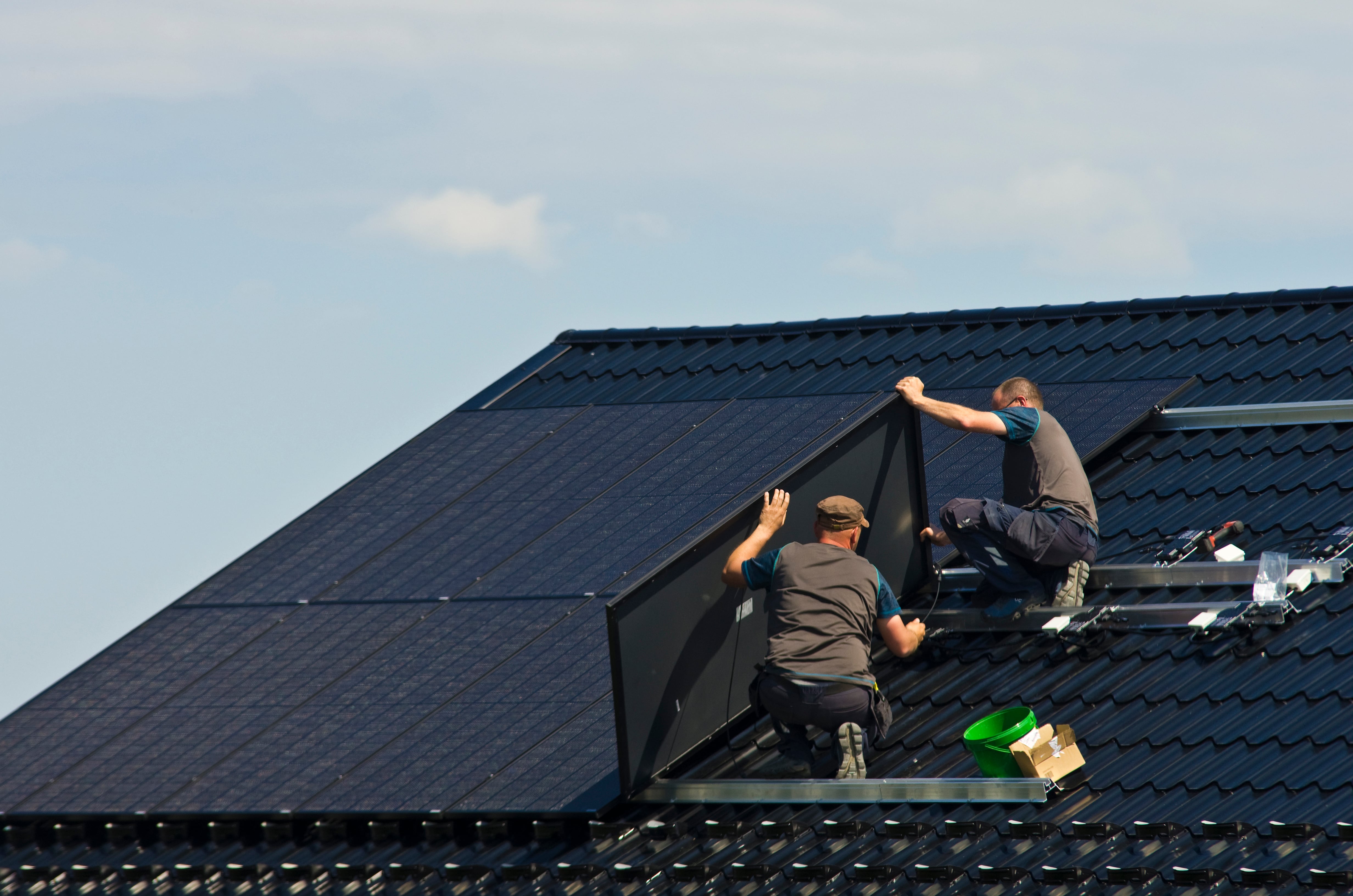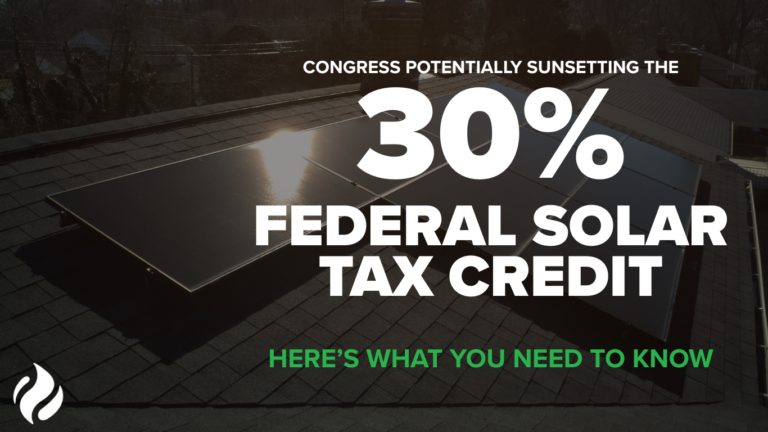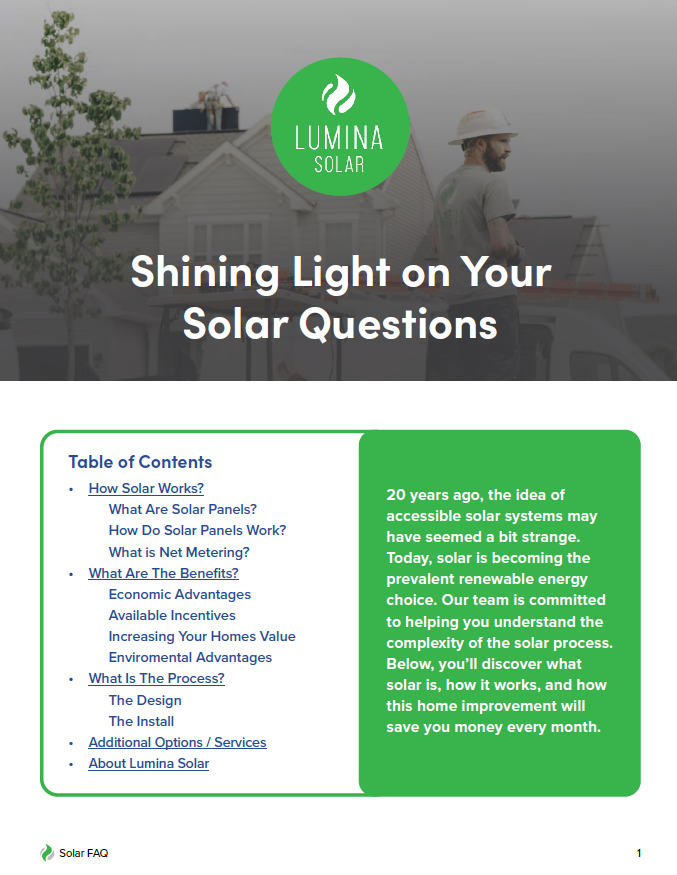Going solar in Maryland is a no-brainer. The state is widely considered as one of the best for solar incentives in the country, with several diverse offerings that help you better afford solar and reap different benefits depending on your system and how effective it is. In this blog, we’ll explore the different solar incentives on offer, and how you can take advantage of them properly to help make the most of your green energy system. From rebates to battery storage, here are the Maryland solar incentives at your disposal that help make the smart decision to go solar even wiser.
Maryland Residential Clean Energy Rebate Program
One of the most simple, straightforward solar incentives is the Residential Clean Energy Rebate Program. This program allows you to claim a $1,000 rebate for the installation of any residential solar system on the stipulation that it has a system size of at least 1 kW. The only other requirements are that it is installed at your primary residence and that the project is completed by an installer certified by the North American Board of Certified Energy Practitioners (NABCEP).
Maryland Solar Renewable Energy Credits (SRECs)
Another incentive you can take advantage of when you install solar are Maryland Solar Renewable Energy Credits, commonly known as SRECs. Maryland has a Renewable Portfolio Standard in place that aims to generate half of the state’s energy through clean, renewable options by 2030. To help accelerate this process, the state is using SRECs to help encourage residential and commercial property owners to adopt green energy. In basic terms, every megawatt-hour (or the equivalent of 1,000-kilowatt-hours) of energy generated qualifies you to receive one SREC. You can then sell this energy back on the SREC market or to energy companies. Typically, the price received ranges from $70 to $80 dollars, which can be a benefit over time as your home or property continues to generate clean energy.
Maryland Solar Property and Sales Tax Exemptions
Another advantage of going solar is that it can increase property value, something many homeowners find favorable. However, one challenge presented with this increase is the chance of property taxes increasing with the value of your home. Maryland helps alleviate this problem by not taxing you on an increase in value related to solar installation. This helps lessen the blow of property taxes while still allowing you to access the advantages of a higher property value.
Sales taxes can add up when it comes to any large-scale purchase. Fortunately, solar is exempted from the 6% sales tax. This means less money spent overall on a system that will in turn help you save money on your energy expenses.

Energy Storage
Effective storage of energy is vital for states looking to transition their energy systems to a cleaner method. If you decide to invest in batteries and other energy storage options, you can receive a significant tax credit for your effort. For residential projects, you can claim up to 30% of the cost of the energy storage installation. Keep in mind that this is capped at $5,000, however. Meanwhile, commercial solar installations can receive the same credit for up to $150,000, a highly effective way to help you recoup some of the costs of solar installation.
Net Metering
Maryland has a comprehensive net metering program that allows you to take full advantage of the extra energy your panels produce. If your home doesn’t use all of the energy it generates in one day, you can transfer that energy back to the local grid. The best part? The state will pay you at the full retail rate for this energy. In particularly sunny months, you can very effectively help recoup your solar installation costs through the net metering program.
Maryland Solar Incentives on the Local Level
Depending on where you live in Maryland, you may be eligible for even more solar incentives. These range from county to county, or sometimes by town and city. In Anne Arundel County for instance, you can receive property tax credits for your solar installation projects. It’s important to confer with your Solar Representative to review all of the available options.
An Additional Option: The Federal Investment Tax Credit
Beyond incentives offered by the state, as a Maryland resident you can also access a federal solar credit. Called the Investment Tax Credit (ITC), this credit allows you to deduct up to 26% from solar installation costs for a solar energy installation from your federal taxes. This credit is advantageous, because it does not have a cap on its value, and it can be used on both residential and commercial projects. To fully understand the ITC, you should note two things. If you lease your panels through a Solar PPA, you will not qualify for the ITC. Additionally, the way the bill is currently set up, incentives actually begin to lessen over time before tapering out for residential owners altogether.
Currently, existing incentives are valid through 2022. Then, in 2023 the credit falls to 22% for residential and commercial projects. In 2024, the credit for residential projects is entirely eliminated but commercial projects can still get a credit for 10% of the project cost. While this statute may be changed over the next few years, it’s important to act quickly if you want to get the best foreseeable federal solar credit on your project.
Going Green Has Never Been More of a No-Brainer
Maryland has a fantastic incentive structure set up for those ready to lower their energy bills and contribute to a healthier world through solar energy. If you’re ready to explore all of your solar options, reach out to Lumina Solar today. Our expert team works diligently to help determine the best path for your solar journey, and explore options that make the whole process more affordable. Contact us for a quote today.




